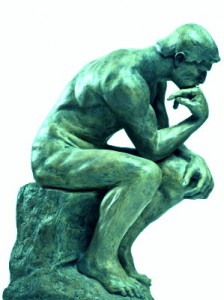 To Scatter, to Distract, and to Entertain
To Scatter, to Distract, and to Entertain
This paper is a meditation on the German word zerstreuen taken from the writings of Walter Benjamin. Zerstreuen is a verb which carries a particularly interesting multiplicity of connotations including the verbs: to scatter, to distract, and to entertain. By elucidating the nuances of this word, I will attempt to give the audience a glimpse into, what may be called, Walter Benjamin‘s attitudes towards ?our coming to terms with modernity. But for the sake of brevity and interest I wish to limit this analysis to the realm of art: the art of the storyteller, the art of the novel, and the art of Surrealism.
These reflections, however, move beyond the mere realm of art, and certainly cannot be reduced to a philosophy of art. In fact, they have their strongest holds in what may be called the political, the ontological, and the historical. At any rate I will give a brief historical narration of different, that is, at least distinguishable epochs of art. In fact what distinguishes them as distinct, has a raw-historical, that is, factual component; it seems to me, that there is no better place to look then our recent history. And thus we can grasp these distinctions most vividly by following the recent history of technology.
In doing so, I will attempt to illustrate how ?technological innovations? are in fact intrinsically bound up, caught, and fragmented into the specificity of these distinct epochs of art and how these distinct epochs comportment themselves towards being, i.e. attain an ontological character, within this frame of technological history. In short, I will be outlining Benjamin‘s story of the destruction and dissemination of what he calls the ?aura (cult-values or forms of communal intoxication) and the dangers and hopes that may follow suit.
Author: Gregory Costello (MA)
Interruption as Critique: Walter Benjamin and the Ruins of History
In this paper, my first aim is to take seriously Benjamin‘s claim to a ?critical? philosophy of history by linking a range of concepts in the Benjaminian constellation and notions drawn from his philosophy of experience: image, reading, myth, progress, rescue. If this first aim is descriptive and interpretive, the second is to engage critically with the images Benjamin puts forward, in light of Habermas‘ critique. Benjamin‘s history—which he sees as incomplete, interruptive—seems to appeal to us to be continually attentive to its demands. But what is this injunction, and how is it to be carried out?
Author: Eva Boodman (MPhil)
The Role of Gnosticism in the Contemporary Modernity Debate
This paper focuses on two philosophers who have developed the relation between Gnosticism and modernity, albeit in different directions, namely Eric Voegelin and Hans Blumenberg. The main purpose of my paper is to understand on a philosophical level why the notion of Gnosticism plays a significant role in the contemporary debate about modernity and why Blumenberg‘s and Voegelin‘s evaluations of modernity and Gnosticism are so different. I argue that the reference to Gnosticism in this debate has something to do with an essential ambiguity or instability in Christianity.
Modernity as well as Gnosticism can in this sense be interpreted as reactions to this instability, as a kind of collapse of the inner Christian tension. This insight may open up the contemporary modernity debate from an unexplored point of view.
Author: Willem Styfhals (MPhil)
